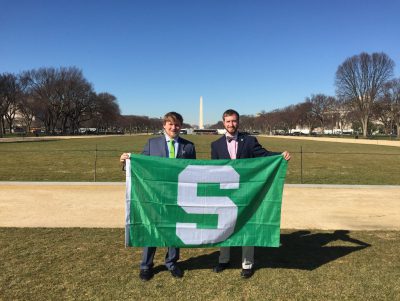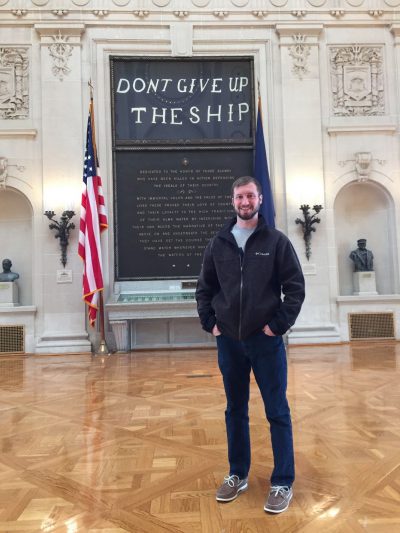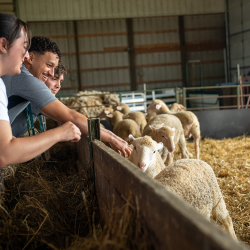
With more lawyers in Washington than there are veterinarians in entire US, it is no small feat for the voice of the veterinary profession to be heard on Capitol Hill. This challenge is bestowed upon the Governmental Relations Division (GRD) of the American Veterinary Medical Association (AVMA), a small group of veterinarians and other professionals that task themselves with educating congress on the issues that affect the veterinary profession.
Being that this task cannot always be tackled by these individuals alone, the GRD calls upon members of the AVMA and veterinary community to join them on certain issues to increase the impact on our congressional leaders. One such time is the annual AVMA Legislative Fly-In. Every year, around a hundred students and veterinarians come to Washington, DC from almost every school in America (and a few international as well) to advocate on the most pressing issues facing our profession.

For me, this was my second trip to DC on behalf of the AVMA; I had the opportunity two years ago to attend this event. One of the main reasons I chose to come back was the feeling of accomplishment I’ve had since that weekend in 2014. The main topic we discussed with our representatives at that time was the Veterinary Medical Mobility Act, which would make it legal for veterinarians to carry controlled substances outside of their clinic. Being a student focused on large animal medicine, this really hit home for me. The fact that veterinarians had to make a choice to break the law or not carry crucial drugs for anesthesia and end of life care was a hard concept to swallow.

Later that year on August 1, after passing the House and the Senate, President Obama signed this bill into federal law. It was an amazing victory for the AVMA and the veterinary profession. To have a bill introduced and raise enough support as quickly as this was astonishing, and hearing that it became law gave me more pride than I could have imagined. I had felt like I had an impact. My voice had been heard.
This alone would have been enough to bring me back for a second trip, but there is more to the Fly-In for students than just advocating for the AVMA. It provides an opportunity for students to learn about how public policy can affect our profession, as well as how we can affect public policy. In addition, it is another opportunity to network with fellow students, many of which have similar interests in governmental relations, as I do.

This year’s Fly-In focused on opposing the Fairness to Pet Owners Act, an act that ultimately may not be so fair to pet owners and especially to veterinarians, as well as continuing the discussion on the rising debt of students in higher education. Along with fellow MSU student Isaac Burrell, I spoke with representatives of Senators Debbie Stabenow and Gary Peters, as well as the representatives from our home districts, Congressmen Fred Upton and Mike Bishop.
As veterinary students, we become accustomed to immediate or relatively quick, tangible results from our actions. It can be difficult to leave a meeting without knowing you have made a difference or swayed someone one way or another. But in Washington, nothing happens overnight. Our actions are perceived weeks, months, or maybe years down the road as the voice of a constituent that sticks in the head of our representatives when legislation comes across their desk. It is unlikely that one voice on its own will have a direct impact on any decision. However, if I garnered anything from my experiences, it is that our representatives do not represent the country. They represent you. They represent me. They represent the constituents of where they call home, and unless we let them know what we want, they cannot properly address our concerns.



